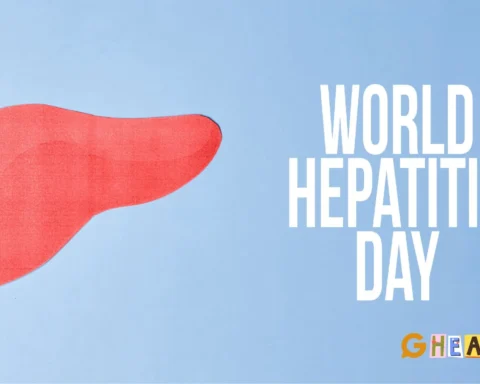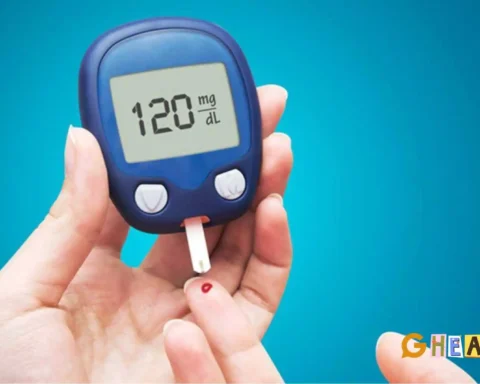The topic of sexual addiction is a complex and sensitive issue that affects individuals and their relationships but is often hushed from conversations about health and addictions due to societal stigma surrounding it, deterring individuals from seeking assistance. Having serious conversations about sex addiction can have different sets of challenges for everyone, and addressing them requires a comprehensive understanding of the nuances of diverse individual experiences and the possible paths to recovery.
In this article, we shall delve into what causes sex addiction in males, why it becomes addictive for some while not for others, its impact, approaches to recovery, and the importance of seeking support.
Table of Contents
What is Sex Addiction?
Sexual addiction is a progressive intimacy disorder that entails an intense preoccupation with sexual fantasies, urges, or actions that spiral into an uncontrollable pattern, leading to distress or negative consequences in various areas of life. It is characterised by compulsive sexual thoughts and acts which lead to addictive behaviour.
While commonly referred to as sex addiction, mental health professionals may use terms like compulsive sexual behaviour, hypersexual disorder, or satyriasis when referring specifically to sex addiction in males.
Sex addiction is not an officially recognised diagnosis, but it is often linked to compulsive sexual behaviour disorder (CSBD). However, there's debate among experts about whether these symptoms neatly fit into one specific mental health condition, making diagnosis tricky.
LISTEN TO THIS PODCAST: From Embarrassment to Empowerment: Understanding Porn Addiction with Dr Paula Hall
Symptoms of Sex Addiction
If you suspect that you or someone you know may be struggling with sexual addiction, here are some common signs to watch out for:
- Persistent preoccupation with or intense thoughts about and cravings for sex, often spending significant time on related activities like seeking partners and visiting explicit websites.
- Increasing secrecy surrounding one's whereabouts or sexual activities.
- Defensive or hostile reactions to questions about their behaviours.
- Engaging in compulsive behaviours, such as escalating the frequency or intensity of sexual activities.
- Pursuing increasingly extreme, impulsive and risky sexual behaviours.
- Neglecting responsibilities and daily life activities or obligations in favour of sex.
- Persisting with these behaviours despite experiencing negative consequences.
- Irritability when unable to engage in sexual activities.
- Disregarding personal boundaries.
- Physical symptoms like sexually transmitted diseases, sexual dysfunction, and mental health issues like anxiety and depression may also manifest.
Why is Sex Addiction Dangerous?
Sexual activities such as masturbation, consumption of internet pornography, or engaging with multiple partners are typical. Still, it is when these behaviours begin to take on a persistent pattern and dominate one's life without their control that sexual addiction may be diagnosed.
Over time, sex addicts often feel the need to intensify their addictive behaviours to achieve the same level of sexual gratification, often leading to destructive hypersexual behaviours and patterns like compulsive masturbation, indulgence in problematic pornography, resorting to prostitutes and, in extreme cases, engaging in dangerous and illegal activities such as exhibitionism and voyeurism.
A 2009 study by Reid and Carpenter found hypersexual populations to be more prone to clinical issues like phobias, obsessions, compulsions, excessive anxiety, psychopathic deviances, characterised by general maladjustment, unwillingness to identify social convention and norms, impulse–control problems, and depression.
What Causes Sex Addiction in Males?
Contrary to common perception, sex addiction is not about finding pleasure in sex itself; instead, sufferers typically feel guilty, ashamed, hopeless, empty, and isolated and adopt these behaviours in response to negative emotions as coping mechanisms for external stressors like work or personal issues.
Causes cannot be traced to one single factor but rather a combination of biological, psychological, and social factors. Sexual compulsivity usually stems from patterns common to addictive disorders caused by alterations in specific brain areas and chemicals triggered by compulsive behaviour.
Studies vary depending on gender-specific trends in sexual addiction. For instance, a 2018 study confirmed higher scores for sex addiction among males compared to females. A study by Bancroft and Vucadinovic suggests that men are more prone to handling negative emotional states with sexual behaviour, showing higher rates of internet porn addiction and frequent use of cyber sex.
Some important underlying factors about what causes sex addiction in males are discussed below.
Social Factors
Women and men alike are discouraged from speaking up about their addiction due to gendered expectations and social standards. The societal perception of masculinity is conventionally tied to sexual vigour, with popular media and culture widely advertising and normalising the notion of male hypersexuality.
This can have adverse consequences on male sex addicts who may refrain from seeking treatment, which can consequently lead to jeopardising personal relationships and integrity or even spiral into violent behaviours related to sex.
Other social factors like rejection in relationships or social circles and social isolation may lead individuals to seek out unhealthy avenues for sexual gratification. Social learning in close-knit in-groups (friends or colleagues) where excessive sexual behaviour may influence individuals to adopt those behaviours for identification and affinity.
ALSO READ: Sex Addiction Effects on the Brain: Understanding the Impact
Cognitive and Neurological Factors
Some studies propose that compulsive sexual behaviour involves the same brain reward system and circuits associated with eating and substance addiction. This pathway extends to the brain's region responsible for rational thinking and judgments, implying that the brain may perceive illicit sex as rewarding, similar to how it perceives food when hungry.
Consequently, individuals with sexual addiction become preoccupied with sex, often losing interest in other activities they once enjoyed despite recognising the harm caused. Furthermore, certain brain chemicals like serotonin and dopamine, which regulate mood, have been implicated in studies linking higher levels to an increased likelihood of compulsive sexual behaviours.
Mental Health Conditions
Sex addiction can often arise from underlying associated mental health disorders like depression or anxiety. Medical professionals have reason to believe that hypersexual behaviour occurs alongside mental health symptoms related to personality and mental disorders. This may include panic disorder, anxiety disorder, attention deficit hyperactivity disorder (ADHD), post-traumatic stress disorder (PTSD), bipolar disorder, substance use disorder and more.
Research has found neuroticism in men to be associated with a greater propensity for sex addiction. However, the stigma surrounding men seeking help prevents them from voicing their problems, and those experiencing psychological distress, sadness, loneliness, or helplessness may resort to sexual experiences and substance abuse to mitigate their emotions.
In the last couple of years, experts have observed a connection between mood states and compulsive sexual behaviour. For instance, a 2020 study found emotional dysregulation to be both a symptom of and contribute to the development of the condition. Another review suggested a correlation between feelings of boredom and hypersexuality, though further evidence is needed to confirm a causal relationship.
Generally, heightened positive and negative emotional stimuli levels have been associated with increased impulsive-compulsive behaviours. These can be improved over time with cognitive behavioural therapy.
Other Medical Conditions
Studies suggest that certain diseases or medical conditions can contribute to sex addiction. Conditions like epilepsy and dementia can damage brain regions associated with sexual behaviour. A 2010 research found that medications like dopamine, which are used to treat Parkinson's disease, may lead to certain compulsive sexual behaviours.
Trauma and Abuse
Trauma is widely recognised as a possible factor in sexual addiction, as evidenced by numerous studies. Those struggling with sex addiction often come from dysfunctional backgrounds, with many having had adverse childhood experiences in the form of physical, sexual or emotional abuse. One study indicated that 82% of patients had suffered childhood sexual abuse.
It is known that our society is reluctant to acknowledge and seriously address abuse when it comes to men, who are not only discouraged but actively snubbed and dismissed from trying to voice their traumatic experiences.
Stressors like neglect, parental loss, witnessing violence, or familial mental illness, including parental enmeshment - where the happiness of a parent(s) hinges solely on the achievements of their child - may also lead to hypersexual behaviour later in life.
Biological Factors
Biological factors like genetic configuration and hormones can play a role in the development of sex addiction.
Genes may contain inherent qualities that predispose one to various risk factors associated with this condition, such as challenges in emotional regulation, anxiety, depression, impulsivity, and sensation-seeking behaviours.
Additionally, sex hormones like testosterone, responsible for influencing libido, can potentially lead individuals with higher hormone levels to engage in repetitive and excessive sexual practices.
ALSO READ: 7 Sex Addiction Coping Skills and Strategies for a Healthier Life
Conclusion
What causes sex addiction in males is a complex issue influenced by biological, psychological, and social factors, often stemming from trauma, emotional dysregulation, social pressures, and genetic predispositions. Although men are socialised to find these difficulties hard to speak openly about, recognising the signs of sexual addiction and seeking help from a sex addiction counsellor is crucial for recovery.
If you suspect that you or someone close to you might be struggling with sexual addiction, please reach out to a qualified sex addiction counsellor or healthcare provider for support. Recovery from sexual addiction is challenging without the appropriate guidance. With proper support, one can take charge of one's healing process and build a healthy relationship with sex and a healthy life in general.
FAQs
Why would a man be addicted to sex?
The causes of sex addiction are not yet well understood, but some medical practitioners believe it may be a combination of a diverse range of factors, including biological, social, medical and psychological issues involving emotional regulation, sexual trauma, and neurological changes.
What is a sex addict called?
Sex addicts may be called hypersexual in general, but other terms that have been informally, and sometimes derogatorily, used are 'satyriasist' for men and 'nymphomaniac' for women.
Is phone sex addictive?
Phone sex can become a form of compulsive virtual sex if obsessive sexual thoughts consume most of someone's time and attention. When sexual thoughts, outlets and feelings interfere with daily life, responsibilities and relationships, one is in danger of falling into a harmful and addictive pattern.










